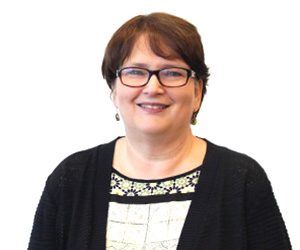When and how did you become involved in AJHA?
I attended my first AJHA conference as a master’s student at the University of Missouri School of Journalism. I took a media history seminar with Dr. Betty Houchin Winfield that focused on press coverage of historic American heroes, considering what scholars had written about the concept of heroism. For my paper, I wanted to write about a woman, a “heroine,” but I had a hard time finding one. I flipped the assignment and focused on how the popular women’s magazine Godey’s Lady’s Book wrote regularly about female heroism in the 19th century, despite the fact that women weren’t supposed to be either heroic or well known. Betty proposed an AJHA panel that included several studies from that seminar, and the panel was accepted. We presented at the 13th AJHA convention in Roanoke, Va., in October of 1994, and it was a blast.
I fell in love with AJHA. It was remarkable to me how welcoming the association was to graduate students. Senior researchers whose books and articles I read for class were there! They didn’t put themselves on a pedestal. They attended sessions, listened and encouraged emerging scholars. I have been involved in AJHA in one way or another ever since. I love attending research presentations, and the conversations about history in-between sessions. I always leave an AJHA conference fired up to do more or better research.
What drew you to studying memory?
That first heroism study was really about how the press reflects and reinforces mainstream values, for better or worse. We venerate heroes (and heroines) based on our own needs and ideas about what’s important. As those ideas change, so do our heroes. I find this fascinating. My next big project looked at newspaper obituaries, which also mirror cultural values. As America evolved culturally, who we remembered in death and how we remembered them changed dramatically.
I study memory because I believe that it matters. People care deeply about the past. Consider the recent controversies over the removal of Confederate monuments or the nation’s reaction to The 1619 Project in The New York Times. Consider the importance of the “founders” and the American Revolution, or the icons of the Civil Rights Movement. Consider the damage done by the “lost cause myth” following the Civil War. Journalism and pubic memory are connected in complicated ways, and I believe that relationship is worthy of study.
Why is memory important to the study of journalism history?
The cliché insists that journalists write the first draft of history. Perhaps. Journalists produce subsequent drafts, too. They use history as a storytelling tool. Consciously or not, they sometimes misuse, distort and “forget” history, and those narratives also enter the public consciousness.
What are you working on now?
I’m still interested in how the press reflects values, but in this period of media disruption, I’m narrowing my focus to journalism values specifically. I’m starting with obituaries of journalists from the American Revolution to the establishment of journalistic codes of ethics in the early 20th century.
I also spend a lot of my time on my duties as associate dean for academic affairs in the College of Journalism and Mass Communication at UGA.
What are some of your interests and hobbies outside of academia?
I am a fan of murder mysteries and read them like crazy. My dog is actually named for a famous fictional British detective’s sidekick, Inspector Lewis. I live near a park with excellent trails, and walk every day with MY sidekick, Lewis, who likes to inspect/sniff out anything he can. I like sports (as a spectator), mainly football and women’s gymnastics. Go Dawgs! I love attending classical concerts at UGA’s performing arts center.

